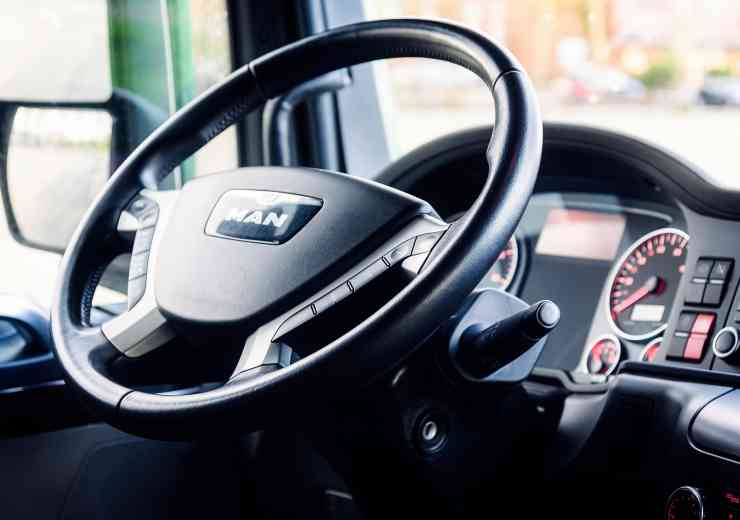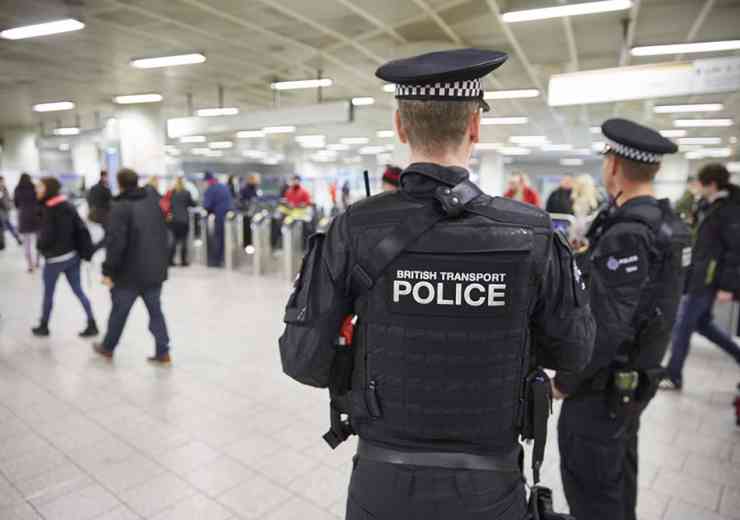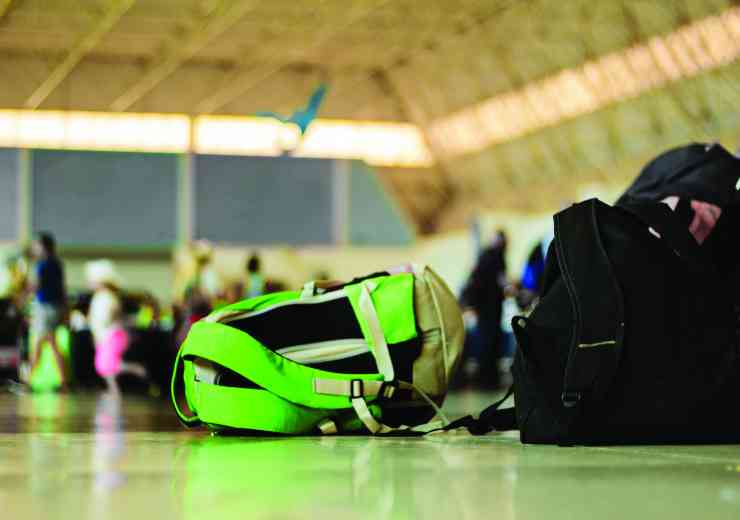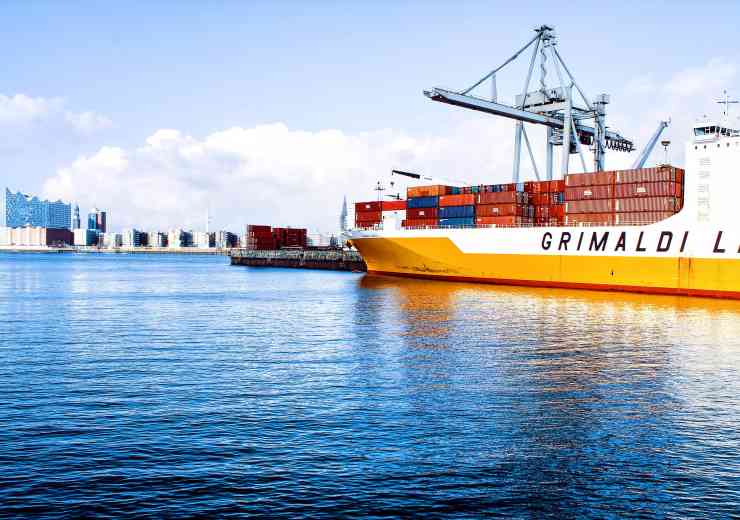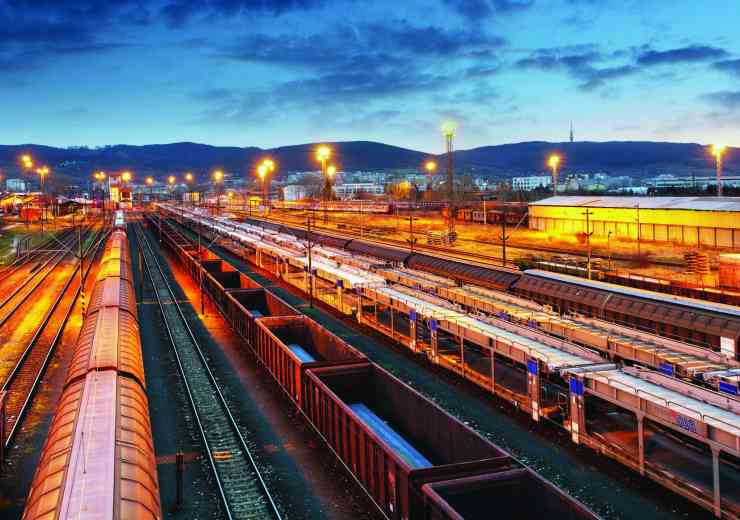IIS offers increased support in the fight against cargo crime
 The cargo crime threat no longer comes just from opportunist criminals. Today, organised crime rings are operating globally and using increasingly violent attacks on vehicles, premises and personnel to achieve their aims.
The cargo crime threat no longer comes just from opportunist criminals. Today, organised crime rings are operating globally and using increasingly violent attacks on vehicles, premises and personnel to achieve their aims.
The Transported Asset Protection Association (TAPA) represents businesses fighting back against cargo crime that want to use real-time intelligence and the latest preventative measures to protect goods in the supply chain. TAPA is a unique forum that unites global manufacturers, logistics providers, freight carriers, law enforcement agencies, and other stakeholders with the common aim of reducing losses from international supply chains.
Today, in Europe, the Middle East and Africa (EMEA), the Americas and Asia, TAPA’s membership is at its highest ever level – and growing month-on-month. The Association’s 700+ members include many of the world’s leading consumer product brands as well as their logistics and transport providers with combined annual sales of over US$900 billion, law enforcement agencies (LEAs), insurers and other trade associations. The Association’s mission is to help protect members’ assets by: Exchanging information on a global and regional basis; Co-operating on preventative security; Increasing support from the logistics and freight industry and from law enforcement agencies and governments, and; Promoting and enhancing TAPA’s globally recognised and applied Security Requirements.
It is TAPA’s firm belief that a secure supply chain equals a safe supply chain, minimising the risk for infiltration of the chain by those who are looking to profit from stealing goods also reduces the opportunity for a terrorist act.
Although TAPA is not aware of any direct links from cargo crime to terrorism, there is anecdotal evidence that organised criminals and gangs are actively engaged in cargo crime and it is possible that funds from their activities filter back to terrorist groups.
When it comes to preventing crime, fast and accurate intelligence is critical. TAPA’s Incident Information Service (IIS) constantly captures and shares data, enabling members to use the latest cargo crime intelligence to avoid incident ‘hotspots’, protect valuable goods in transit and, if required, to report and trace stolen property. IIS intelligence is provided to the service by individual TAPA members and law enforcement agencies (LEA) and is made available to members using fast incident information email alerts as soon as new incidents are reported, quarterly bulletins (available in four languages), an online database and via TAPA EMEA’s monthly newsletter.
IIS acts as a centralised resource of knowledge related to criminality against freight in transit within the EMEA region and to facilitate the dissemination of that information to member companies and to LEAs. Additional benefits of IIS include: rapid dissemination of incident reports support the investigation process and recovery of stolen items; statistical analysis of ‘high risk’ routes and geographical areas to allow corrective and pre-emptive actions; Increased awareness of cargo theft problems at local, national and international levels; access to a database of incidents against members’ freight shipments can be stored in a common format, analysed and made available to all members and to relevant law enforcement agencies; use of a managed directory of contacts within LEAs, manufacturers and logistics security personnel, and; links to sources of manufacturers’ product descriptions to support investigative activities
Recently TAPA EMEA IIS quarterly report has provided an analysis of cargo theft data recorded in the IIS from April 1 to June 30, 2012. A total of 49 incidents were recorded in the EMEA IIS system in the second quarter of 2012 (down from 58 during the same period in 2011).
The EMEA region had nine countries that recorded incidents, which were classified as the following: 35 general incidents, 13 major incidents and one attempt. The average loss for incidents with reported values during this quarter was €131,204. The average loss value for Q2-2012 is substantially lower than the one recorded during the same period in 2011 when the average loss value was €193,385. Note: Trucks thefts without associated cargo loss and attempts are not included in the Q2 analysis to facilitate an accurate view of cargo crime incidents.
Q2 Incident Information System Update
The countries with the most recorded incidents in Q2 were Germany, Italy, France, United Kingdom and Austria. Together these five countries accounted for 86 per cent of all the incidents recorded in this quarter. Metal, with 12 incidents, was the product category most targeted during the second quarter (as it was during the same period in 2011) closely followed by the Food & Beverage category which counted for 11 incidents. Consumer electronics was the third-most targeted category with 7 incidents, followed by the Non-electronic category with 5 incidents.
The type of incidents most frequently reported during Q2-2012 was Theft of Vehicle with 17 incidents, Theft from Vehicle with 14 incidents and Burglary with six incidents. Theft of Vehicle alone accounted for almost a third of all recorded incidents, at 34. In addition to this information, TAPA’s members and Law Enforcement partners are able to drill down looking for trends or country focus on hot spot crime occurrence which could also lead to other illegal activities.
Risk Management Standards
TAPA Security Requirements are recognised globally as the industry standard for cargo facility and transport security, notably: FSR (Freight Security Requirements); TSR (Trucking Security Requirements), and; TACSS (TAPA Air Cargo Security Standards). These standards have been created and are regularly updated by security and logistics specialists to help TAPA members reduce losses and provide a platform for more uniform conformance with best of breed security. TAPA certified carrier hubs and depots guarantee minimum security standards for manufacturers and are suitable for inclusion in contractual agreements.
TAPA’s Security Requirements have been established by security professionals within the high value, high risk product sector to address the nature by which goods are handled, warehoused and transported as they move throughout the world. They specify the minimum acceptable security standards for assets travelling throughout the supply chain and the methods to be used in maintaining those standards. In addition, they outline the processes and specifications for companies to attain TAPA certification for their facilities and transit operations.
TAPA Security Requirements provide a valuable quality and security benchmark for manufacturers that want to choose logistics providers that meet or exceed TAPA’s certification requirements. The successful implementation of these standards is dependent upon suppliers, TAPA certified auditors and customers working together to accurately interpret, adopt and audit security standards against these requirements. All TAPA standards are independently audited.
Public Private Partnership
Regulatory affairs represent a key area of TAPA EMEA’s agenda as it works to protect its members’ interests and bring about positive changes in security legislation, practices and attitudes in the supply chain and insurance communities as well as with law enforcement and other government agencies. This involves day-to-day liaison and exchanges of information with law enforcement authorities to raise awareness, increase co-operation and facilitate more pro-active and effective anti-crime activities.
In support of the combined objectives of the Association and partners, TAPA EMEA members also form Working Groups to develop, progress and implement its objectives. TAPA EMEA also spends considerable time and resources advising and lobbying European and other government authorities to ensure members’ interests are represented at these levels. For example, seeking conformity between European security regulations and TAPA security requirements.
TAPA has achieved great success in bringing cargo crime to the political agenda in crime ‘hot spots’ in Europe. For example, in the Netherlands, in response to a campaign driven by TAPA, the Dutch government has appointed a special Prosecutor dedicated to the fight against cargo crime. TAPA has also had input into the United Nations’ work to set international agenda on land transport security and participated in forums hosted by the Organisation for Security & Co-operation in Europe.
Last year TAPA EMEA was invited to share its concerns and views with both the EU and the UNECE on issues which would assist in making the supply chain more secure from criminals, and thus those with terrorist agendas. The Key Areas for EU discussion included, initiative on Drivers’ ID, Grants for secured parking, designated Prosecutor for Cargo Crime, initiative on data sharing between EU members and TAPA IIS, and Safe and Secure lanes for cargo.
Challenges facing members
One of the many challenges that face TAPA members, especially those involved in the transport sector, relates to driver IDs. Due to the ease with which the EU workforce can move within the Member States, it is difficult to know if a driver has been involved in supply chain crimes elsewhere before being placed in charge of a high value or sensitive consignment of goods or materials.
Another recognised challenge facing the supply chain is how to protect a stationary vehicle. Over the last few years, TAPA members have seen an increase in the number of attacks on vehicles when they are parked, as they fall easy prey to a would-be thief. After the publication of the Secure European Truck Park Operational Services (SETPOS) best practice handbook and the LABEL project, TAPA introduced its Truck Parking Assessment Program, which includes the uses of its Parking Standards Recommendations to assess the security provision found at parking locations throughout the EU. TAPA would like to see EU support and funding to create more secured parking facilities.
In November 2009, the Secretary of Justice for the Netherlands announced that as of 1 May 2010, they would be appointing a National Prosecutor for the coordination of the activities against cargo crime. This appointment followed a motion in Parliament, which was adopted by a wide majority in both governmental and opposition parties after much procrastination between the Parliamentary Committee of Justice and the Secretary. The main concern for the Committee had to do with questions over the volume of incidents and if there would be a sufficient number of incidents reported formally to the Police to warrant the post. TAPA would welcome other countries following this initiative
A pilot secure lane project on the corridor from Venlo (Dutch-German border) to the port of Rotterdam has shown a massive reduction in transport crime: from 74 reported incidents along this corridor in 2009 to 4 incidents in 2010. This was achieved through the implementation of cameras, connected to a Police database, with the capability to recognise both license plates and vehicle movements on and between parking areas, truck stops and restaurants along the corridor. The cameras send a signal to a regional control room for any suspect license plates or vehicle movements where private parties observe and assess the information in real time.
TAPA believes that the introduction of more secured lanes throughout EMEA will help ensure both a secure and safe supply chain.
Further information
www.tapaemea.com
digital issue







